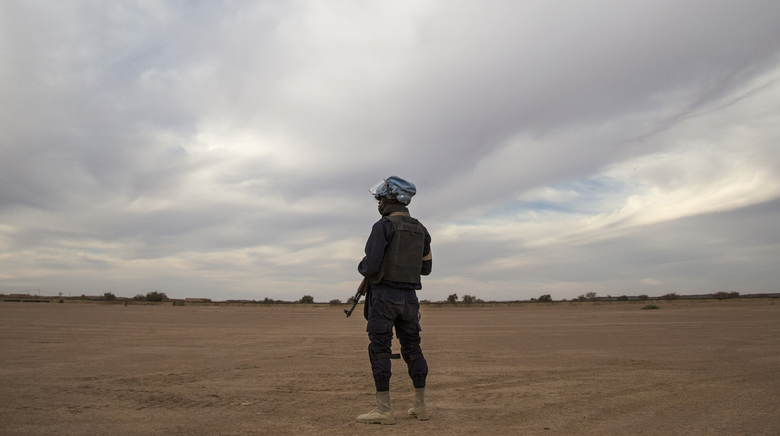Mali Experiencing Significant Insecurity, Climate Variability – Report
Mali is facing a complex web of issues, including climate variability, governance, and deficit and livelihood challenges.

Mali has, over the past decade, experienced violent conflict, rainfall variability, and increasing frequency and intensity of extreme weather events, according to a new Adelphi report.
The report, titled “Weathering Risk climate, Peace and Security Assessment”, took a deep dive into the climate crisis in the country and the violent conflicts that have occurred in places like Gao, Kidal, Tombouctou, Mopti, Segou, and now in southern and western regions.
The attention on Mali has mostly been about the threats from jihadists and the changes in the political and security landscape after the military coup. Mali has previously experienced coups in 2012, August 2020, and more recently May 2021. The military Junta headed by Colonel Assimi Goita, has set timeline for transition and elections.
The country has also been in the spotlight following the withdrawal of French troops from Operation Barkhane, a counter-insurgency mission in the Sahel.
The French intervention in the country began in 2013 as Operation Serval, a campaign to roll back the rebellion in the north of the country before transition into counter terrorism force. The United Nations Multidimensional Integrated Stabilization Mission in Mali also provides security support.
The Adelphi report highlights the critical drivers of the instability such as poor governance, structural socio-economic exclusion, and marginalisation. It describes weak governance as a cause and consequence of the conflict.
The situation is further complicated because, at the same time, livelihoods are increasingly becoming difficult to sustain. According to the assessment, the problem is caused by a wide range of factors such as recession, inequality, insecurity, corruption, social exclusion, and policies that erode rather than enable coping strategies.
These dynamics, it says, “enmesh with significant demographic changes in the form of population growth, urbanisation, a shift towards sedentarisation, and movement in search of economic opportunities”.
Amidst these instabilities and economic hardship, climate and conflict intersect. Although the report notes that “variability in climate, both geographically and over time, is not new to Mali, but recent decades have seen a steep change”.
It also states that Mali’s environmental challenges come from climate change, and resource management systems often directly affected by conflict.
The German think tank reports that the average temperature has increased by approximately 0.96 °C since the beginning of the 20th century, with higher temperatures in the country’s northern parts. It reveals that during the same period, monthly average precipitation level decreased by 5%, with wetter southern regions (most strongly Kayes and Sikasso) and arid regions of Tombouctou and Taoudenit being particularly affected.
In some areas, rainfall has increased, “the average number of heavy precipitation days per year rose from approximately 2.9 in 1999–2003 to around 3.6 days in 2012 –2016,” the report said. It adds, “After the droughts of the 1970s and 1980s, an increase in flooding events has been observed across the Niger River Basin, in a general return to wetter conditions”.
Nevertheless, droughts have reportedly remained a recurring phenomenon. The country is also experiencing pressure from land degradation, which it says has reduced “vegetation cover and contributes to the loss of fertile land – most notably a 15% or 366,000 ha tree cover loss due to deforestation between 2000 and 2020”.
Mali’s projections are quite disturbing, with precipitation and water availability projected to be highly uncertain, “but considering projected population growth, overall per capita water availability will very likely strongly decline”. Similarly, the temperature is projected to rise “between 1.8 and 2.5 °C by 2030, and between 2.0 and 4.6 °C by 2080 compared to pre-industrial levels”.
Support Our Journalism
There are millions of ordinary people affected by conflict in Africa whose stories are missing in the mainstream media. HumAngle is determined to tell those challenging and under-reported stories, hoping that the people impacted by these conflicts will find the safety and security they deserve.
To ensure that we continue to provide public service coverage, we have a small favour to ask you. We want you to be part of our journalistic endeavour by contributing a token to us.
Your donation will further promote a robust, free, and independent media.
Donate HereStay Closer To The Stories That Matter




